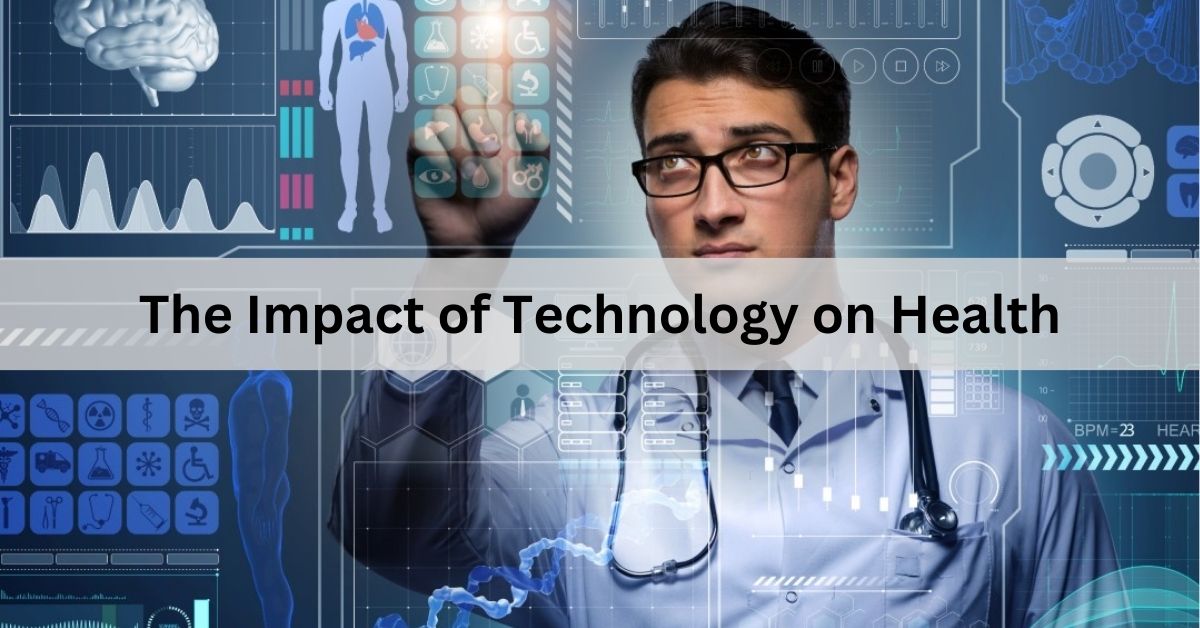Technology has revolutionized healthcare, offering transformative benefits while also presenting potential risks. This article explores the profound impact of technology on health, examining its advantages, potential drawbacks, and strategies for harnessing its power responsibly for improved health outcomes.
1. Advantages of Technology in Healthcare
Technology enhances healthcare delivery in numerous ways:
- Enhanced Access to Information: Patients and healthcare providers can access medical information, research, and educational resources online.
- Telemedicine: Remote consultations and virtual healthcare services improve access to healthcare professionals, especially in rural or underserved areas.
- Medical Diagnosis and Treatment: Advanced imaging technologies, diagnostic tools, and robotic-assisted surgeries enhance accuracy and precision in diagnosis and treatment.
- Patient Monitoring: Wearable devices and mobile apps allow real-time monitoring of vital signs, medication adherence, and chronic disease management.
- Health Records: Electronic health records (EHRs) streamline data management, improve coordination of care, and reduce medical errors.
2. Improving Patient Care and Outcomes
Technological advancements contribute to better patient care:
- Personalized Medicine: Genetic testing and data analytics enable personalized treatment plans based on individual genetic profiles and health data.
- Efficiency and Productivity: Automated systems, digital prescriptions, and telehealth solutions optimize workflow efficiency and reduce wait times.
- Health Education: Online platforms and mobile apps provide educational resources on disease prevention, management strategies, and healthy lifestyle choices.
3. Challenges and Risks
Despite benefits, technology introduces challenges and potential risks:
- Data Privacy and Security: Concerns about unauthorized access to sensitive patient information and data breaches.
- Digital Divide: Disparities in access to technology and digital literacy may limit healthcare access for certain populations.
- Over-reliance on Technology: Dependency on technology may reduce face-to-face interactions and human touch in patient care.
- Ethical Issues: Ethical dilemmas arise with the use of AI in healthcare decision-making and patient autonomy.
4. Mitigating Risks and Ensuring Ethical Use
Strategies to mitigate risks and promote ethical use of technology in healthcare:
- Security Measures: Implement robust data encryption, access controls, and cybersecurity protocols to protect patient data.
- Education and Training: Provide ongoing education for healthcare professionals on technology use, data privacy, and ethical considerations.
- Regulatory Compliance: Adhere to regulatory standards and guidelines (e.g., HIPAA) for patient confidentiality and data protection.
- Patient Engagement: Involve patients in decision-making, informed consent, and transparency regarding technology use in their care.
5. Future Trends and Innovations
Anticipated advancements shaping the future of healthcare technology:
- Artificial Intelligence (AI) and Machine Learning: AI-powered diagnostics, predictive analytics, and personalized treatment algorithms.
- Internet of Medical Things (IoMT): Interconnected devices and wearable sensors for continuous health monitoring and management.
- Virtual Reality (VR) and Augmented Reality (AR): Applications in medical training, pain management, and therapy.
6. Balancing Innovation with Patient-Centered Care
Strive for a balanced approach to technology integration in healthcare:
- Human-Centered Design: Design technologies that prioritize patient needs, preferences, and user experience.
- Collaboration: Foster collaboration between healthcare providers, technologists, policymakers, and patients to drive responsible innovation.
- Ethical Frameworks: Develop and adhere to ethical frameworks and guidelines to guide technology development and implementation.
7. Conclusion
Technology continues to reshape healthcare, offering unparalleled opportunities for improving patient care, efficiency, and outcomes. By leveraging technological advancements responsibly, addressing challenges, and prioritizing patient-centered care, healthcare systems can harness the full potential of technology to advance health and well-being globally. Embracing innovation while upholding ethical standards ensures that technology remains a powerful tool in achieving healthier futures for individuals and communities worldwide.


